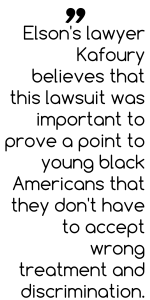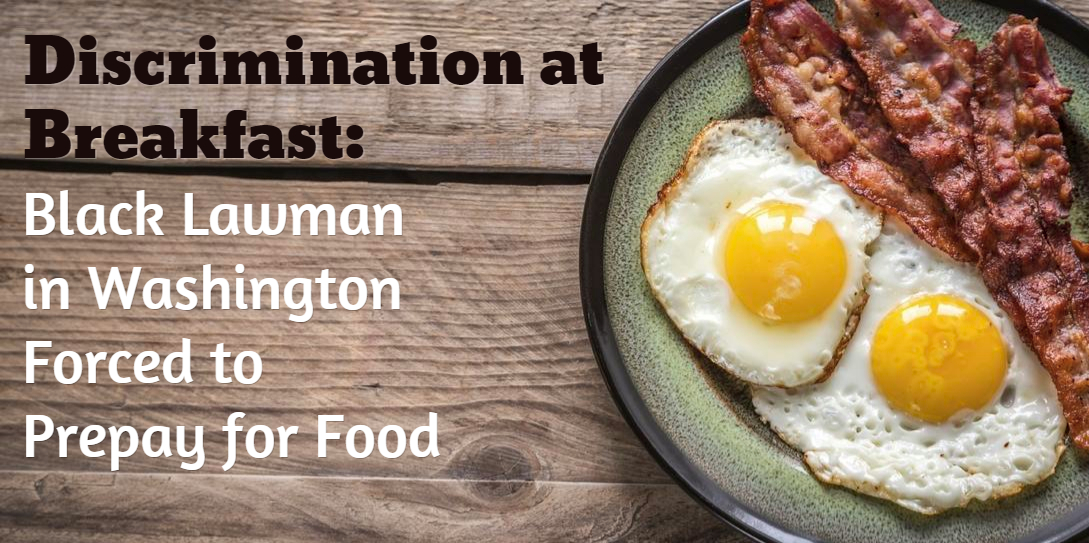Imagine walking into a restaurant, placing your order for breakfast like all of the other diners, and then being told that you would be required to prepay for your meal before you could be served. When you inquire as to why, the waitress informs you it is because of a “discriminatory” policy that the restaurant has in place and apologizes. Unfortunately, this is exactly what happened when black sheriff’s deputy of Multnomah county, Brian Eason, stopped in at an Elmer’s restaurant in Vancouver, Washington one morning in December. Eason has since filed a lawsuit with the aid of his lawyer, Greg Kafoury.
 Even though the request bothered Eason, he went ahead and prepaid for his breakfast as he was asked. However, later that day he returned to the restaurant in Vancouver to inquire about this policy that seemed so discriminatory. While he was there, he spotted a white couple seated and eating their meal and asked if they had been required to pay for their meal in advance. The couple questioned by Elson were amazed that someone would expect that they would have to prepay, according to Kafoury. Soon after, Elson, who is also a real estate agent in the Vancouver area, filed a lawsuit against the restaurant and is seeking $100,000 in compensation for what he has been through.
Even though the request bothered Eason, he went ahead and prepaid for his breakfast as he was asked. However, later that day he returned to the restaurant in Vancouver to inquire about this policy that seemed so discriminatory. While he was there, he spotted a white couple seated and eating their meal and asked if they had been required to pay for their meal in advance. The couple questioned by Elson were amazed that someone would expect that they would have to prepay, according to Kafoury. Soon after, Elson, who is also a real estate agent in the Vancouver area, filed a lawsuit against the restaurant and is seeking $100,000 in compensation for what he has been through.
The restaurant chain claims that the only reason Elson was required to pay was because he sat in the lounge area where previous customers had left without paying for their food, according to their statement to the Human Rights Commission in Washington State during a follow-up investigation. However, there have been similar lawsuits in the past from black restaurant customers who were required to prepay for their meals. Specifically, in 1994, Denny’s restaurant franchise paid out more than $54 million to thousands of African-American customers.
There are 25 Elmer’s restaurants in four states and since the lawsuit was filed, the chain claims that the previous policies on prepayment in their restaurant locations is being changed. Elson’s lawyer Kafoury believes that this lawsuit was important to prove a point to young black Americans that they don’t have to accept wrong treatment and discrimination.


